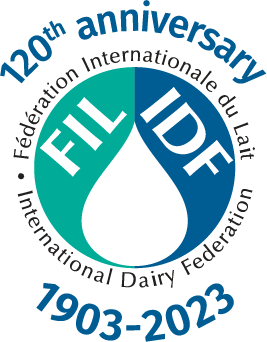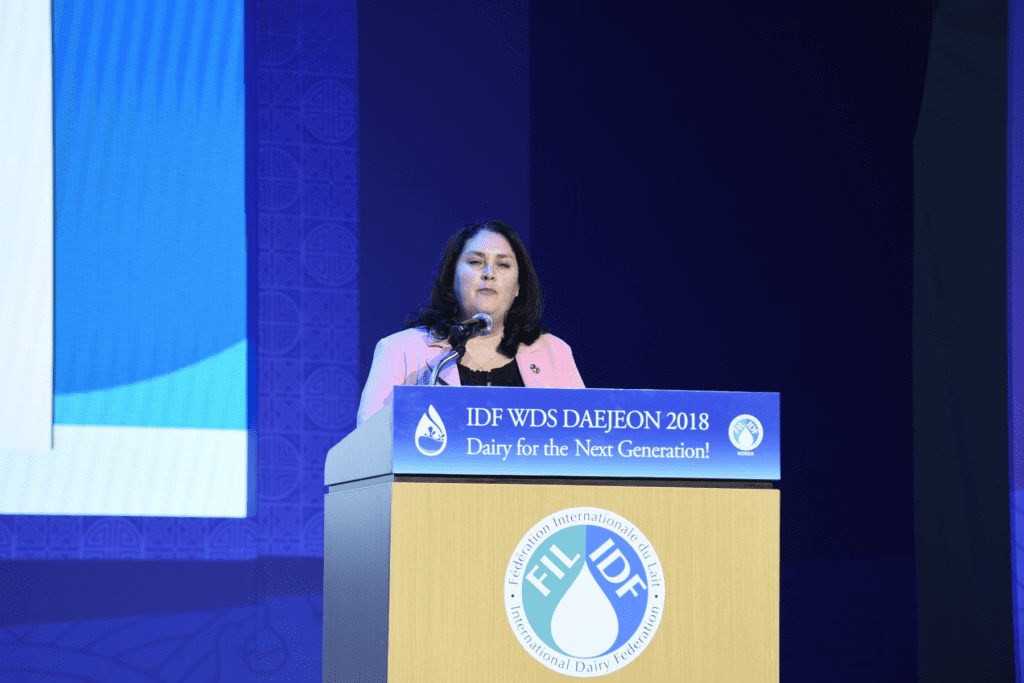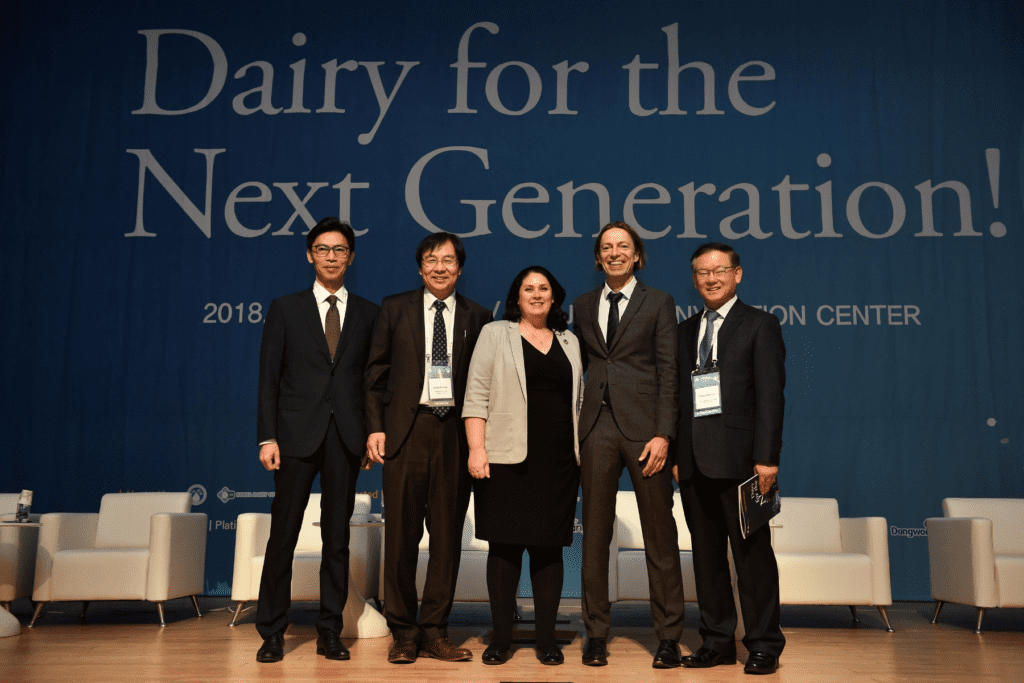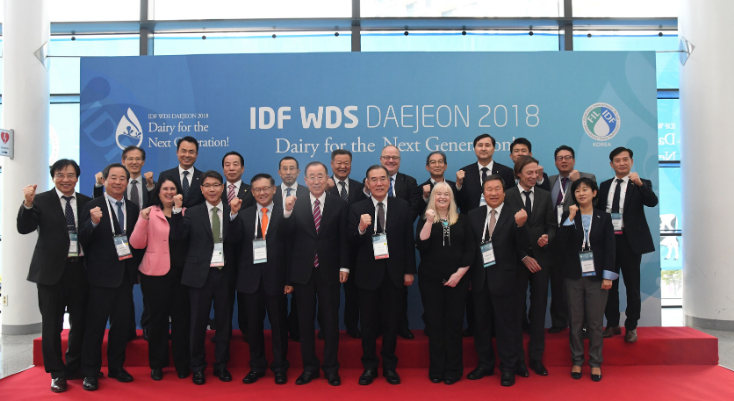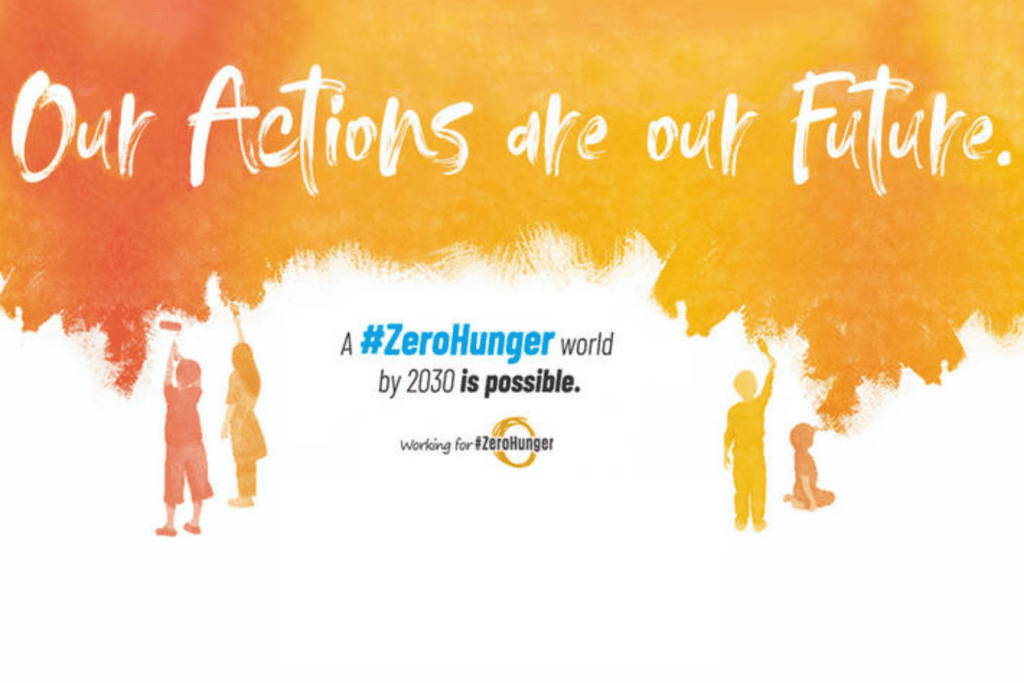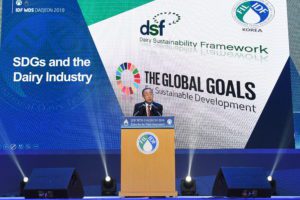

In a keynote speech delivered at the opening of the IDF World Dairy Summit 2018 in Daejeon, Korea, on 15 October, Mr Ban said: “This increase in population will naturally be followed by acute food shortage. I believe that milk will be one of the solutions to combat any food shortages that may occur.”
Describing milk as a ‘complete food’, Mr Ban said: “Milk is a primary food staple for the world’s population of more than 7 billion people. Scores of malnourished and food-insecure children across the world receive crucial nutrients from milk.”
Mr Ban said milk is critical and essential for international efforts to combat poverty and hunger, stressing the importance of milk in providing essential nutrients for starved children. “Milk serves as an important nutritional food, as well as an essential staple for emergency relief. Providing milk is one of the simplest ways to help people in conflict areas and disasters.”
Mr Ban said he is heartened to note that the dairy industry is committed to sustainably providing nutritious dairy products to 9 billion people as the population grows, while also making efforts to preserve the environment. He cited the Dairy Declaration of Rotterdam, a joint initiative of the International Dairy Federation and the UN Food and Agriculture Organization launched in October 2016 to promote dairy sustainability through responsible consumption and production.
Mr Ban said the dairy sector plays a leading role in international efforts to achieve the Sustainable Development Goals (SDGs) which are aimed at socio-economic transformation to eradicate poverty and hunger, and to construct a sustainable world where humanity can enjoy better education, healthcare, and equality.
The SDGs were launched in 2015 during Mr Ban’s tenure at the UN and sustainability remains a key passion of his. He serves as Co-Chair of the Ban Ki-Moon Centre for Global Citizens in Vienna established in January 2018 within the framework of the Sustainable Development Goals to empower women and youth.
Mr Ban pointed out that the dairy sector plays an important role in helping to achieve many of the SDGs covering poverty eradication, banishment of hunger, good health and wellbeing and gender equality. Mr Ban said the dairy sector creates employment through its value chain, generating the third-largest output and the largest trade volume among all agricultural industries.
At the same time, he acknowledged that the dairy sector is promoting environmental protection by implementing initiatives to reduce global carbon and water footprints by striving to minimize greenhouse gas emissions, and water and soil pollution generated during the production and distribution of dairy products.
“Unlike produce that is harvested once or twice a year, dairy products can be produced every day. This means that more cash can circulate through rural areas, injecting vitality into rural economies. As a result, the well-being of rural areas is improved, and the quality of living is enhanced.”
Mr Ban urged the dairy community to collectively prepare for the next century by strengthening sustainability for the next generation.
“Seven billion people around world today not only recognize milk as a healthy food, but also appreciate the value of the dairy industry for its contribution to humanity’s growth.”
He called on the dairy sector to continue to strive through collective efforts to achieve the SDGs.
“I hope the accomplishment of these goals can help construct a better environment for your industry to further prosper. I hope you can forge a robust global partnership that goes beyond the boundaries between countries, continents, and regions, and that you can work together to drive the development of humanity and society as global citizens.
“I look forward to your industry being duly recognized not only for the nutritional values of its products, but also for its industrial values rooted in sustainability and responsibility. I truly believe this will further enable your industry to actively contribute to humanity’s happiness.”
